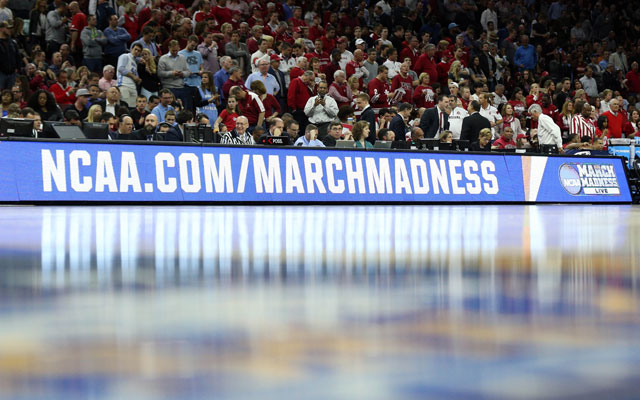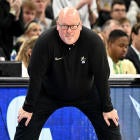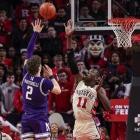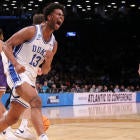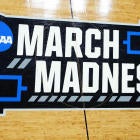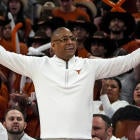Big East commissioner Val Ackerman made headlines recently when she told Sports Illustrated the NCAA is contemplating letting student-athletes receive endorsement deals.
"[It's] actually under consideration, I believe, by the NCAA,” Ackerman said.
Interesting, right?
But here's the reality: I checked with the NCAA and was told student-athlete endorsements is not actually on an upcoming governance agenda, at this time. But it's worth noting that conferences can, over the next few months, submit legislation for consideration for the next cycle. So if Ackerman wants the issue of student-athlete endorsements to be under consideration, well, she is somebody who can theoretically make it happen.
And you know what?
I hope she does.
And then I hope others take a hard look at it.
Because it really is a sensible solution to a big problem.
If I had a dollar for each time I've heard somebody say "student-athletes should be paid," I'd have as many dollars as the leagues that use student-athletes to secure huge television contracts. But the people who say that don't actually mean it. Or, at least, they don't actually mean all student-athletes should be paid. (Nobody is advocating for Division III golfers, you know?) What the people who say that mean when they say that, rather, is that the student-athletes who are presumably valuable -- i.e., notable football and basketball players -- should be paid. And I've long believed the NCAA allowing student-athletes to accept endorsement deals is the best and smartest way to accomplish this goal while mostly eliminating the seemingly never-ending threat of lawsuits against the governing body.
Nike wants to pay Ben Simmons while he's at LSU?
Fine.
Let Nike do it.
McDonald's wants to pay Buddy Hield while he's at Oklahoma?
Fine.
Let McDonald's do it.
Simply put, if some company, large or small, wants to make a student-athlete an endorser, and the student-athlete wants to do it, let them do it. And then what we'd have is a system where the best players in the biggest sports would be financially compensated, and the system wouldn't cost the NCAA or its member institutions a penny.
So what's not to like?
The schools would still get to make money off of student-athletes without having to pay them. But the notable student-athletes would suddenly be getting real money for the time they spend in college. And this system might also help keep some notable student-athletes in school longer because a company could essentially pay them to stay in school longer, if it wanted. And who's against notable student-athletes staying in school longer?
Answer: Not me.
Now I know what you're likely thinking ...
But wouldn't this also create recruiting advantages at the local level, Parrish?
In a word, yes. And that is the counter-argument I hear most -- that it wouldn't just be Nike paying Ben Simmons. Or McDonald's paying Buddy Hield. It would also be a car dealership in Cincinnati paying Gary Clark. Or a bank in Raleigh paying Cat Barber. And that it could create a situation where it's just understood that if you're a point guard who signs with Kentucky, a local hospital will pay you $250,000 a year to endorse its emergency room.
Rest assured, stuff like that would happen.
Coaches at ACC programs with boosters who own companies and care, for instance, could tell prospects, "Yeah, if you go to that Horizon League school, there's a hamburger joint that might sign you to a $10,000 endorsement deal. But if you come with us, there's a $70,000 endorsement deal with a sporting goods store available. So you're coming with us, right?"
Again, you're correct if you think that would happen.
But so what?
All that would mean is that the most powerful schools with the strongest fan bases and biggest budgets would have recruiting advantages over the less-powerful schools with weaker fan bases and smaller budgets, which is EXACTLY THE WAY COLLEGE BASKETBALL IS RIGHT NOW. In other words, the same programs that are good today would likely be good tomorrow. And vice versa. So the order of things in college basketball -- and college football, for that matter -- wouldn't change much, if at all. And the days of cheating would be over, too. Because nobody would ever again have to wonder why a five-star recruit signed with one school or another, or if something unseemly went down. Now we'd always know what went down because it would be detailed in a contract.
Seriously, you'll never talk me out of this plan.
Notable student-athletes could get paid real money. But the money wouldn't come directly from university budgets. And it might lead to players staying in college longer. And the schools that get the top players now would still get the top players then.
So everybody gets what they want and wins.
Whatever market materializes would dictate everything.
(It's the American way!)
So, bottom line, count me in, Val Ackerman.
Letting student-athletes receive endorsement deals is not currently under consideration, according to the NCAA. But it could be, if you want it to be. So what I now hope is that your league becomes the league that actually submits it for consideration, and that you then become the commissioner who convinces your colleagues it is the best and smartest way to curb the student-athletes-should-be-paid conversation. Because it's a plan that would allow notable student-athletes to essentially get whatever somebody believes they're worth, and it would neither be a financial strain on universities nor a Title IX nightmare.
